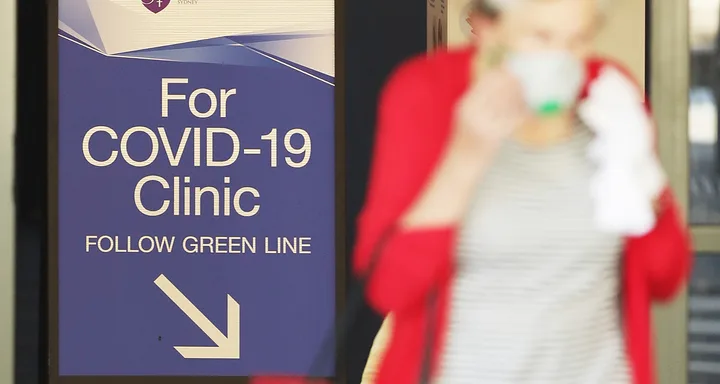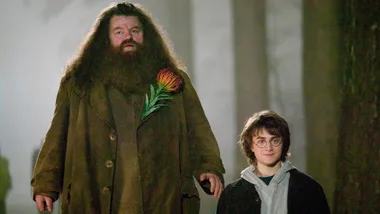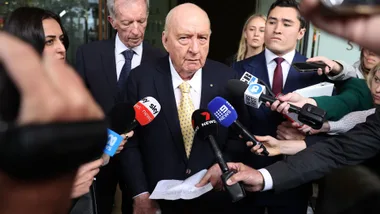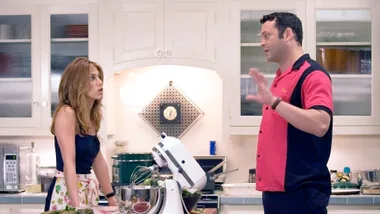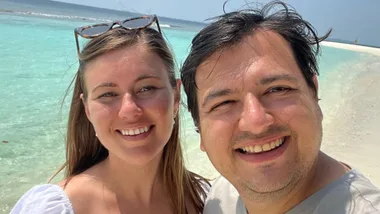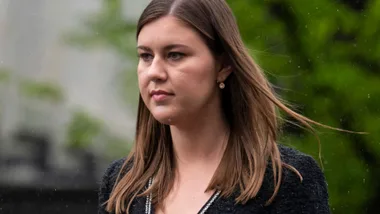“Any questions?” asked marie claire’s Managing Editor, Lulu, as we wrapped up yesterday’s production meeting, a rapid run-through of magazine deadlines, digital stats and story ideas.
“I have one,” piped up our Fashion Director, Jana. “When will this be over?”
My colleagues, a grid of tiny faces on Zoom, all stared back blankly. Everyone was wondering the same thing – and perhaps for the first time, even our fearless leader Lulu didn’t have the answer.
By now, many of us across Australia have completed our first full week of extreme social distancing. We’re working from home, forgoing our usual extra-curricular activities and swapping vodka-soaked nights out for virtual dinner parties. Some of us are relieved we’ve simply survived seven-plus days holed up at home; others admit they’re already going stir-crazy.
But most of us can probably agree on this: we’re exhausted. Exhausted because in the wake of COVID-19 the world as we know it has been suddenly and shockingly turned upside down, and exhausted by the cloud of uncertainty hanging overhead. When is this pandemic going to end? And when, if ever, will life return to normal?
RELATED: How It Feels To Be A Working, Pregnant Mum Amid A Pandemic
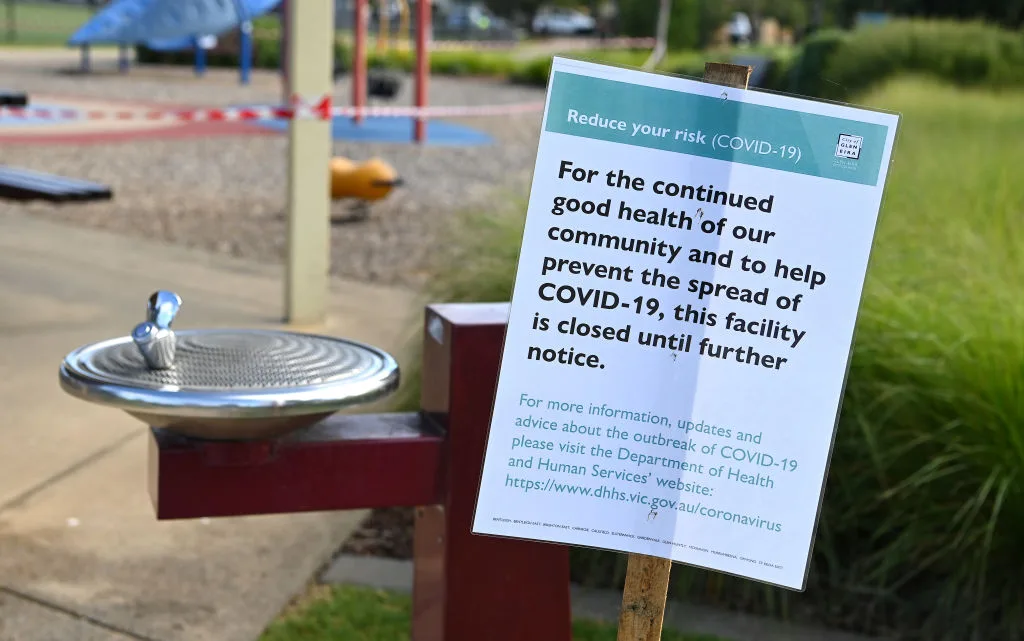
The Australian Government remains tight-lipped on timelines, cautious to be held accountable to dates as they navigate uncharted territory. Despite calls from the media and medicos, Prime Minister Scott Morrison has declined to share the modelling and research behind the Australian Health Protection Principal Committee’s coronavirus action plan.
This is understandable yet unfortunate, given the very unique nature of a pandemic. Unlike an incidence of say, war or terrorism, the everyday actions of we, the Australian people, will immensely affect how this plays out. And knowledge is power.
Thankfully, some medical experts are going public with their projections – and it’s not all doom and gloom.
Physician and ABC health reporter Dr Norman Swan believes a “short and sharp” period of strict social distancing could get COVID-19 under control in Australia in six weeks. To make that happen, 80 per cent of us would need to stay home. Always. On top of that, rigorous testing and absolute isolation of anyone who’s had coronavirus – or who’s come into contact with a patient – would be imperative.
RELATED: This Twitter Account Is Sharing Self-Isolation From A Dogs Point Of View
“If you do all those things you can drive down the new infection rate to very small numbers, and when you get to very small numbers and have proper testing in place, it’s easy for the system to find those infections and keep it down,” Dr Swan told the Coronacast podcast. “Wouldn’t it be great if it’s only a month or six weeks we have to do this for, rather than six months?”
He notes that after that, we wouldn’t bounce back to business as usual. Rather we’d experience a slow and steady return to our normal lives, with an intensive, vigilant testing regime in place.
New modelling from the University of Sydney makes a similar, slightly less optimistic case. It predicts that if 80 per cent of us comply with strict social distancing measures, COVID-19 could be manageable in Australia within four months; or if 90 per cent of us comply, we could cut that back to 13 or 14 weeks.
The research warns that any less than 70 per cent compliance will make the pandemic almost impossible to contain and control.
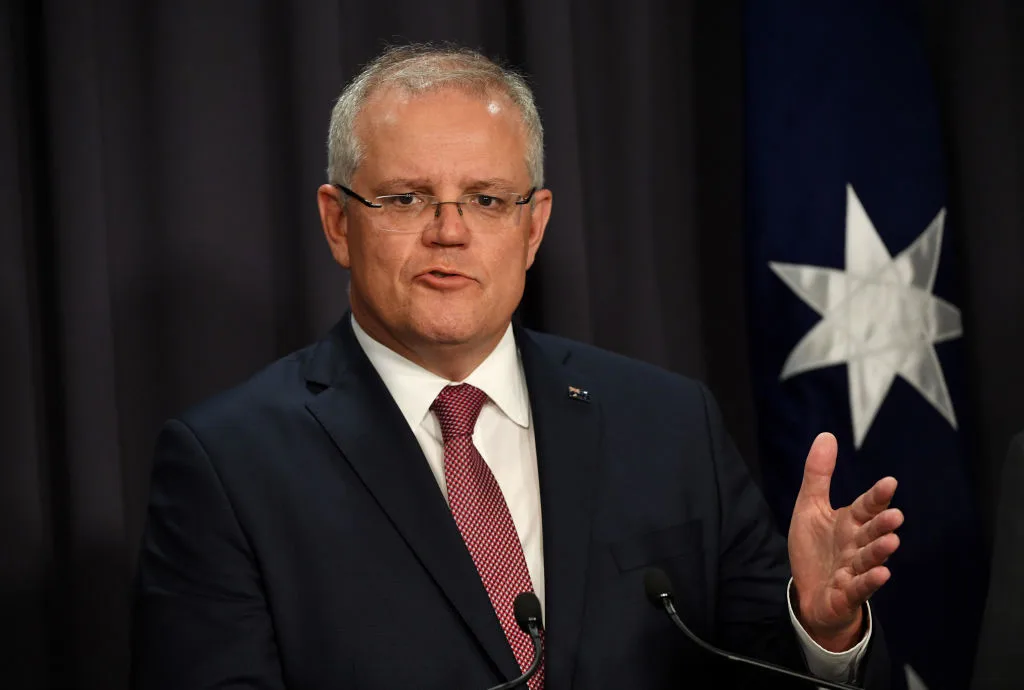
Now is not the time to be complacent. Australia’s infection rate has slowed in the last few days, but these numbers may not illustrate the full picture: recent cruise ship arrivals could lead to a surge in cases over the coming weeks, plus testing is still limited.
Meanwhile, the Federal Government seems set on a softer shutdown (which some hypothesise could last up to 12 months). It’s a clear effort to save the economy and I’m not here to poke holes in their plan.
But what I do see is an opportunity for us, the Australian people, to do our bit. To stick out these severe restrictions, perhaps so conscientiously that this is all over sooner than anticipated (and more importantly, that we stop the devastating loss of lives).
Of course, staying home is not an option for some, but we need to find new ways to make this work within our communities. One genius Facebook group is linking up doctors who need childcare – amid pending school closures – with performers and creatives who are currently out of work. Out-of-the-box thinking is what’s going to get us through this together, apart.
As Dr Swan said: “If you don’t want to be locked up for a year, you’ve got to get behind this … We’ve got to stop moaning about governments and politicians and what they do and don’t do. This is [about] the community engaging with this and doing it … We’ve got to rule the virus and stop the virus ruling us.”
But I digress … How long is this going to last?
The answer is in our hands.
